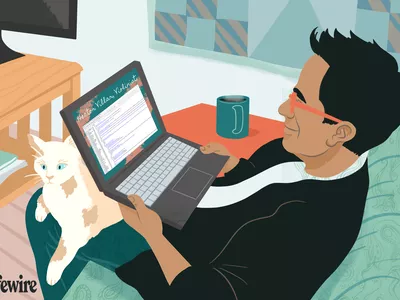
Prevent Cross-Site Tracking on Vivo S17e and Browser | Dr.fone

Prevent Cross-Site Tracking on Vivo S17e and Browser
Have you ever wondered why you get the advertisements of the websites you visited a few minutes ago on your social media sites? Here comes to Cross-Site Tracking, also termed CST, and it is a process where third-party cookies and sites track your browser history.
 EmEditor Professional (Lifetime License, non-store app)
EmEditor Professional (Lifetime License, non-store app)
![]()
The CST process is like invading your privacy by collecting your browser history and personal information. So, to prevent these services, there are several ways by which you can cross-site tracking on your system as well as Vivo S17e phone browsers. Keep reading to learn how to stop cross-site tracking on both Vivo S17e and browser.
Part 1: Why Do We Need to Stop Cross-site Tracking?
Cross-site Tracking is all about collecting your browsing data and other information for advertising purposes. Though the process can prove convenient for many as it provides additional information about the products and services you have searched for and offers tailor-made content, it is intrusive and about breaching your privacy.
Cross-site tracking collects information about your browsing history. The third-party cookies also monitor the content type you have visited and your personal information, which is risky.
Besides invading privacy, the CST also poses several other issues. Based on your browsing history, additional content you have not asked for is loaded on your visited sites, slows down the page loading process, and puts an extra burden on your battery. Moreover, too much-unwanted content can interfere with the basic information you are looking for.
So, it is always better to prevent cross-site tracking for all the above and more reasons.
Further reading: A detailed guide on faking location in Mozilla Firefox . Don’t worry about your location privacy anymore!
Part 2: Can Private Browsing be traced?
Yes, private browsing can be traced. When you work in private browsing mode, the web browser does not save the browsing history, which means that anyone who uses your system will not check your online activities. But websites and cookies can track your browsing history as well as other information.
Part 3: How to Disable Cross-website Tracking on Safari for iOS Devices?
Safari is the most commonly used platform by iOS users. So, to prevent CST for Safari on your iOS devices and Mac systems, below is a complete guide.
Deactivate Safari cross-website tracking for iPhone & iPad
Safari cross-site tracking can be prevented using the below steps on your iPhone and iPad.
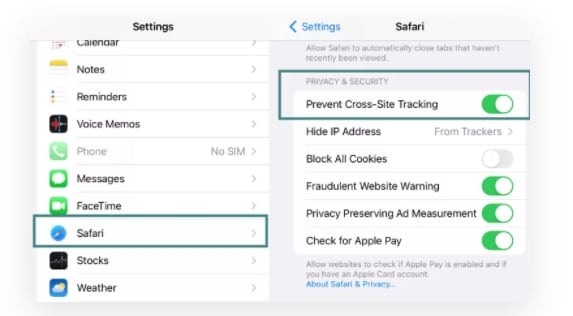
- Step 1. Launch the Settings app on your iOS device.
- Step 2. Find the Safari option by scrolling down the menu.
- Step 3. Move the slider to turn on “Prevent Cross-Site Tracking” under the PRIVACY & SECURITY option.
Deactivate Safari cross-website tracking for Mac
Use the steps below to turn off cross-site tracking on Safari on your Mac systems.
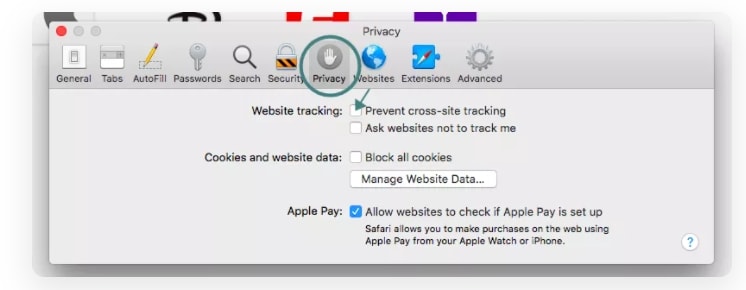
- Step 1. On your Mac system, open the Safari app.
- Step 2. Move to Safari > Preferences > Privacy
- Step 3. Enable the “Prevent cross tracking” option by clicking on the box next to it.
Part 4: How to Disable Cross-site Tracking on Google Chrome
Chrome is used widely on Windows systems and Android devices, and to prevent the CST from your browser, a detailed guide is given below.
Enable “Do Not Track” on Google Chrome for Android
- Step 1. On your Vivo S17e, open the Chrome app.
- Step 2. At the right side of the address bar, click on the More option and choose Settings.
- Step 3. Choose the Privacy option from the Advanced tab.
- Step 4. Click on the “Do Not Track” option to turn on the feature.
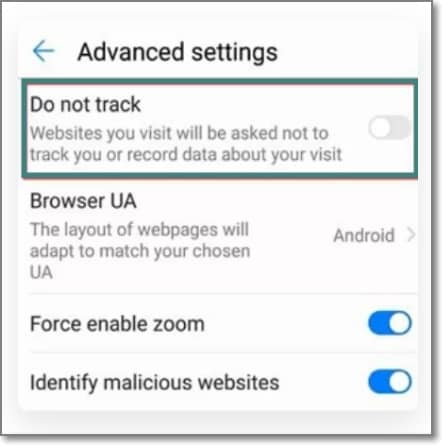
Enable “Do Not Track” on Google Chrome for Computer
- Step 1. Launch Chrome on your system, and from the menu at the upper-right corner, click on the Settings option.
- Step 2. From the “Privacy and Security” tab, choose the “Cookies and other site data” option.
- Step 3. Tap and enable the slider next to “Send a “Do not track” request with your browsing traffic.”
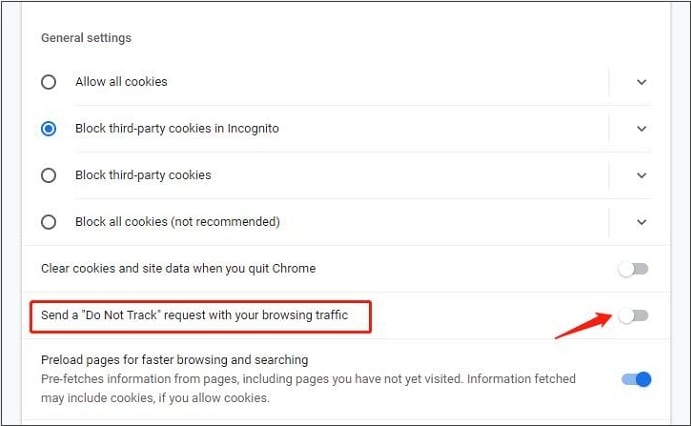
Part 5: Recommended Solution: Fake a Location to Stop Cross-Site Location Tracking Using Dr. Fone
What if you let the sites and cookies track your phone location without worrying about your privacy? Yes, it can be done by spoofing your location. So, if you set a fake location while browsing the internet, you will not have to worry about cross-site tracking, as anyways, the sites and cookies will get misled browsing information that cannot harm you in any manner.
Setting a fake location on your iOS devices, a professional tool is needed, for we recommend Wondershare Dr.Fone - Virtual Location as the best tool. Using this Android and iOS-based software, you can set any fake GPS location on your device. The tool is simple to use and does not require any mastery of technical know-how.
Key features
- Simple tool to teleport to any GPS location in a single click.
- Allows simulating GPS movement along the route.
- All popular models of Android and iOS devices are compatible.
- Compatible with all location-based apps on your phone.
- Compatible with Windows and Mac systems.
Here is a video tutorial for you to take an overview of how to use Dr.Fone - Virtual Location to fake location on your Android and iOS devices.

Steps to set fake location on your Android and iOS devices using DrFone-Virtual Location
Step 1. Download, install and launch the software on your Windows or Mac systems. On the main software interface, choose the Virtual Location option.

Step 2. Connect your iPhone or Android device to your system using a USB cable and then tap on the Get Started option on your software interface.
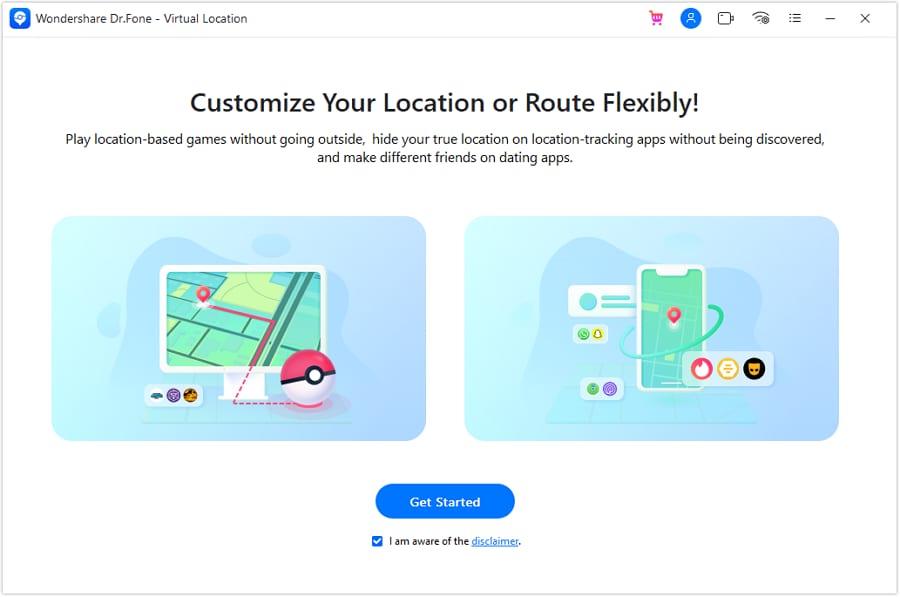
Step 3. A new window on the software interface will open, showing your connected phone’s real and actual location. If the detected location is incorrect, click on the “Center On” icon to display the right device location.
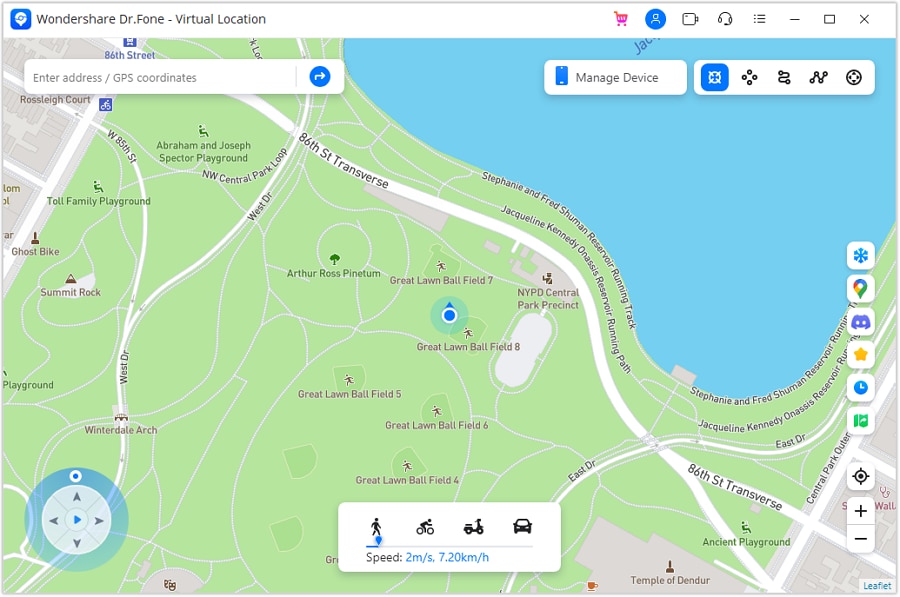
Step 4. Next, you need to activate the “teleport mode” and click o the 3rd icon at the upper-right corner.
Step 5. Next, you have to enter now the fake location to which you wish to teleport to at the upper-left corner. Click on Go.
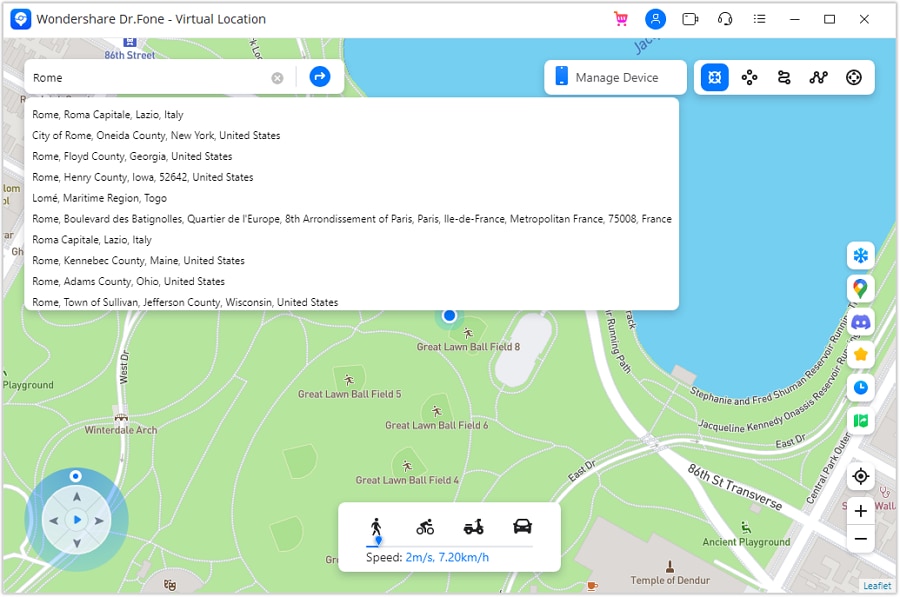
Step 6. Finally, tap on the Move Here button and the new fake location for your connected Android or iOS device at the pop-up box.
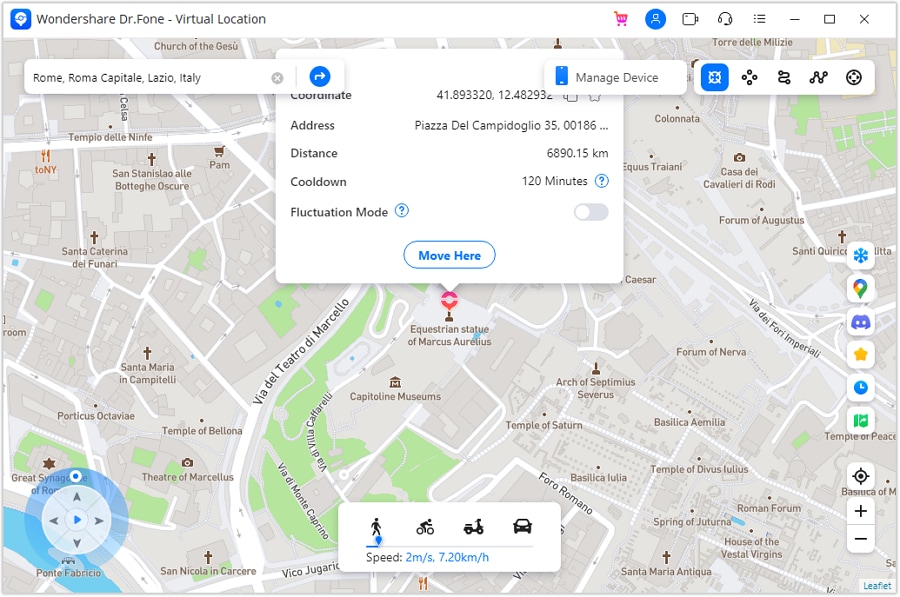
Check the new location of your phone from the app.
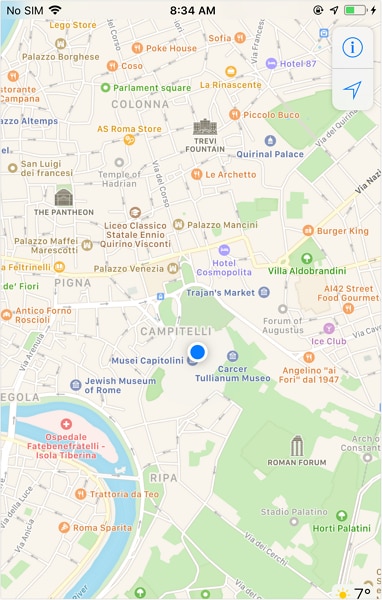
Wrap it up
Preventing Cross-site tracking can be done on different browsers and devices using the guides listed in the above parts of the article. Settings a fake location for your device using Dr. Fone-Virtual Location is another interesting way to prevent tracking your browsing history by spoofing the sites and cookies. Setting a fake place will not only avoid monitoring your browsing history but will also work with all location-based apps on your phone.

What is Geo-Blocking and How to Bypass it On Vivo S17e?
Have you ever entered a website and can’t access it because it is unavailable in your area? This is what geo-blocking means. If you want to know more about geo-blocking, you have come to the right article. This article provides the definition, symbols, function, type, and how to bypass a geo-blocked site.
Encryption is often used in geo-blocking as a means of protecting material that is restricted to users in just certain locations. In its long existence, the method has been met with several obstacles. These obstacles will be discussed in the next sections!

Part 1. What is Geo-Blocking?
This section will give you the definition of geo-blocking. It will also show how websites inform viewers that they are in geo-blocking areas.
Definition of Geo-Blocking
Geo-blocking is the practice of restricting online access to certain users depending on where in the world they happen to be physically located. Telecommunications firms, websites, and other content providers and intellectual property owners often use this method for copyright protection. To monitor and enforce geo-blocks, databases that map out IP addresses’ geographical locations are often employed.
Understanding the Main Symbols and Elements
You sometimes can’t access a site because it isn’t available in your area. This is the main element carried by geo-blocking.
Every online-surfing tool has a unique identifier called “IP address”. The address can identify the Vivo S17e devices’ geographical location. When users access a website, their devices send their IP addresses to the online servers. The servers read if the IP addresses are included in the allowed list and determine whether to allow the visitors to view the content.
The visitors usually know they are geographically limited through the website’s displayed outcomes, a poster indicating that the service is unavailable in the location. Take the geo-banned access by Airbnb as an example below.
 Power Tools add-on for Google Sheets, 12-month subscription
Power Tools add-on for Google Sheets, 12-month subscription
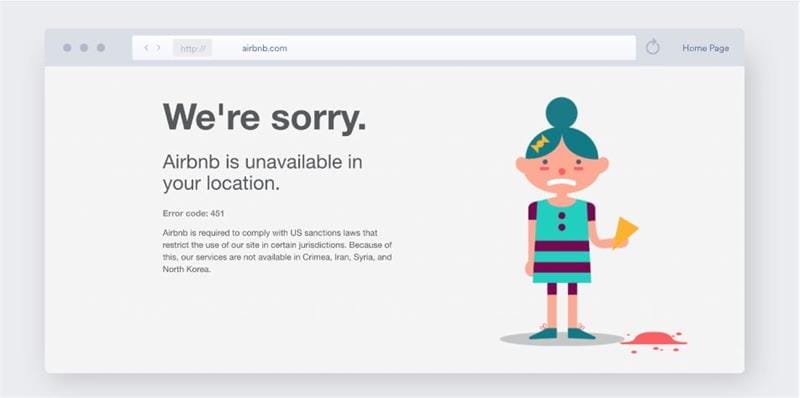
Although Airbnb has been criticized for posing a threat to the availability of low-cost lodging in metropolitan areas, it has proven to be a useful resource for travelers. However, not everyone can use it; for instance, it is unavailable in Iran due to US sanctions.
Part 2. How Does Geo-Blocking Work?
When a firm, rather than a government, is responsible for geoblocking, IP addresses are often the first line of defense. Your IP address is like a street address, revealing where you live.
IP addresses are numerical identifiers that distinguish each machine on the internet. Your computer’s IP address is sent to the server of the website you visit so that it may supply the required data.
You’ll be assigned an IP address when you sign up for an Internet Service Provider. It is possible to pinpoint the location of your device using its IP address, albeit the degree of precision may vary. Websites use the IP address to determine whether you can read their content. They will thus refuse your request if you are using an IP address that’s not on their approved list.
Part 3. Common Types of Geo-blocked Content
The difficulty stems from legal hurdles, including copyrights, licenses, and territorial disputes. Certain streaming services may not make all of their offerings accessible in all regions, or a major online shop may restrict some of their offerings to customers in just one geographic area.
Youtube
Users who upload videos can restrict access to them in certain countries. This nearly usually indicates that a business has chosen that you shouldn’t be able to see a video because of where you are located.

Spotify
You may be trying to find a method to unblock Spotify because you want to listen to unavailable music in your country or because the app has been prohibited in your area.

Live Sports
Big events may be aired exclusively by one company, which means you may be forced to pay to access certain material or go through annoying subscription hoops.
 Software Update Pro - Check and update software installed on your computer.
Software Update Pro - Check and update software installed on your computer.

Pandora
Do you want to tune in to this online radio and music station? You can’t access it anywhere in Europe because of a regional firewall.

Porn sites
Artists from porn sites can now geo-block their movies, much like YouTube users do. Some porn sites have been outlawed in several countries, including Egypt and Pakistan, where the vast majority of the population resides.

Amazon
Amazon Prime geo-blocks other services as well as its streaming content. Games, ebooks, software, audiobooks, and other digital materials like TV and movies may be licensed and copyrighted. Amazon Prime prevents certain VPN IPs from accessing foreign content, including Netflix.

Part 4. Tips to Bypass Geo-Blocking
While certain sites may be blocked in your country, there are still methods to access the full functionality of the web. What exactly are they, and how do you go about getting them? Here’s more reading material.
Method 1. Use Smart Domain Name System (DNS)
Clever DNS can evade geoblocking if your smart TV, streaming box, or gaming console doesn’t support VPNs or proxy servers. Some home routers can generate VPN connections, but not all.
By changing your DNS address, clever DNS may alter your device’s virtual location. Smart DNS replaces your Internet provider’s DNS server. Netflix.com’s IP is not netflix.com. You’ll acquire the smart DNS provider’s transparent DNS proxy IP. Netflix thinks you’re in the US since this proxy server is.
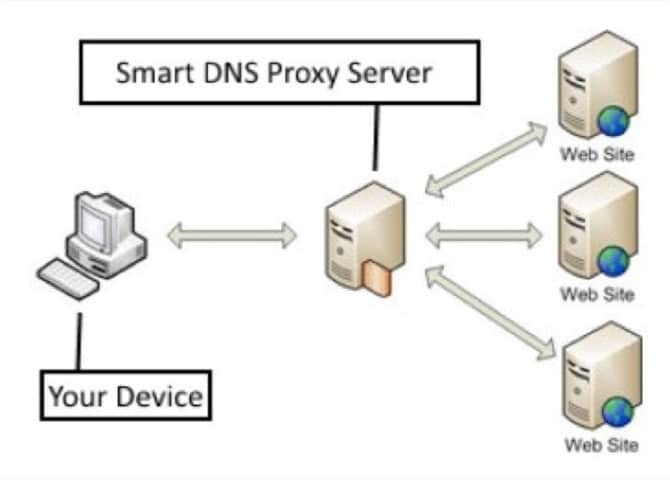
Method 2. Connect to Proxy Servers
Rather than connecting you directly to the server housing the material you want, a proxy server functions as an intermediary. A proxy server does what its name implies: it acts on your behalf to get access to the data and then forwards it to you. Proxy servers, especially those in foreign countries, may be used to get around geographical restrictions.
Depending on the kind of proxy server you use, you may or may not be able to conceal your IP address when surfing the web. Proxy servers are available online and may be accessed from any web browser. Setting up a proxy server is easy, but your activity may still be vulnerable since proxies don’t secure your data.
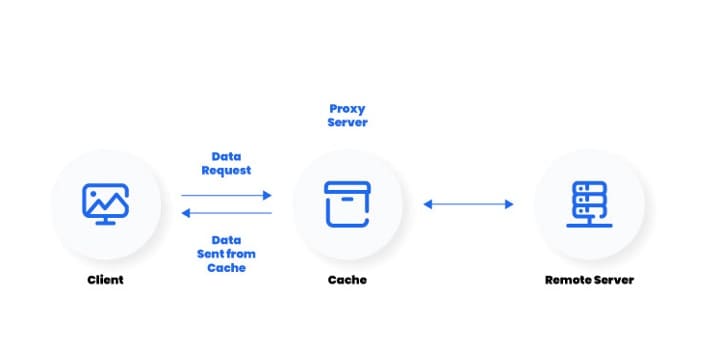
Method 3. Use the Tor Browser
In addition to using a VPN, you may use the anonymous Tor browser. The Tor browser links to the Tor network, a collection of computers that collaborate to conceal your online footprint by relaying your traffic via several intermediary nodes.
Tor employs a technique called “onion routing” to conceal its users’ identities. Since more time is required to traverse these additional levels, your internet speed may suffer as a consequence.
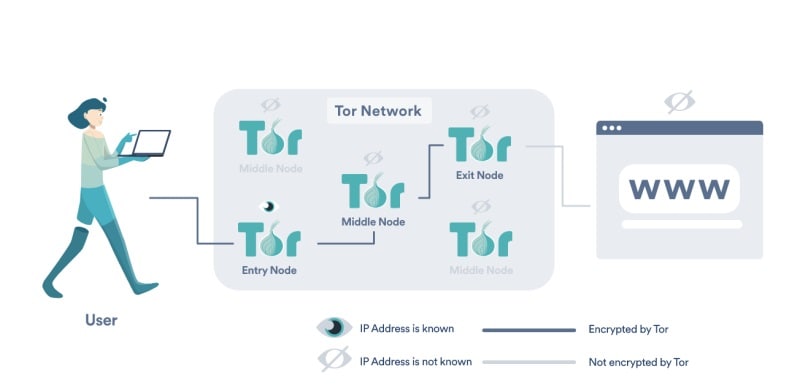
Method 4. A Good VPN Connection
A virtual private network (VPN) may hide your online identity and protect your data by encrypting your connection. VPNs allow you to get around geographically restricted material by redirecting your connection via a server in another country. This will allow you to connect to VPN servers in other countries, such as the United States, the United Kingdom, or Australia.
With effective VPN tools , you can surf the web anonymously, unblock geo-blocked content, and watch your favorite programs abroad. There are several advantages to utilizing a VPN, particularly when you travel or use public Wi-Fi, and they are simple to set up.
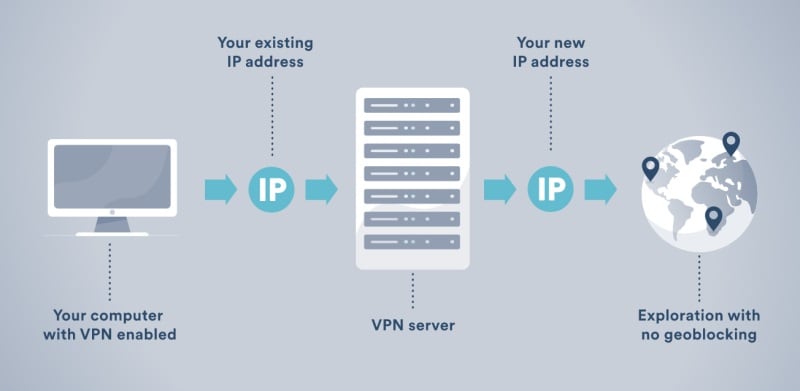
Part 5. FAQs About Geo-Blocking
Here are the answers to four questions that you might ask about geo-blocking.
1. Is Geo-Blocking Legal?
Yes. It’s legitimate. Limiting access to websites and services based on a user’s location is lawful. This practice is routinely used in nations like China to prevent citizens from seeing politically sensitive material. Legal arrangements, such as licensing agreements, may also be enforced by geo-blocking.
2. Is Bypassing Geo Blocking Illegal?
It depends. Depending on the situation, the nation, the purpose of the use, and the technique used, geo-blocking circumvention may be against the law. Copyright regulations prohibit users from accessing material beyond its designated location, yet many providers are reluctant to penalize users for doing so.
3. What’s the Difference Between Geo-Fencing and Geo-Blocking?
Geo-fencing is to create digital fences on which to base real-world judgments about where to go. One may draw a boundary around it using longitude and latitude lines on a map to easily establish who is permitted inside a certain region. Restricting access to material based on a user’s physical location is called “geo-blocking.”
4. Is Geo-Restricted the Same as Geo-Blocking?
They are the same. Restricting a user’s ability to access certain online resources depending on their location is known as geo-blocking or geo-restriction. To safeguard their license agreements, foreign media streaming firms often use the practice of geo-blocking.
Conclusion
For several reasons, media and content producers use geo-blocking. Although geo-blocking is unlikely to ever go out of style, there are techniques to circumvent it. Use a virtual private network (VPN) to bypass geo-restrictions on the material you want to watch. Using a Virtual Private Network (VPN), a proxy server, the Tor network, etc., your online location may be hidden or masked.
Geo-blocking controls. It’s both useful and abused. Website banning discriminates and manipulates. Geography may be annoying and frustrating. Sadly, they may always be in style. You don’t have to tolerate them!
iSpoofer is not working On Vivo S17e? Fixed
Pokemon Go is one of the most appreciated games across the world. Yes, it has been banned in a few regions because of the controversial concept of the entire game but that’s one of the reasons why people turned to spoofer apps. While wanting to catch more Pokemon is the main reason for location spoofing, to evade the boundary barriers of the game is one more reason.

However, if you have checked recently, iSpoofer has gone - MIA. You don’t find relevant sources to download the application and you don’t see your desperate attempts bringing any fruitful results. Does this mean that the good old days of iSpoofer’s popularity are over? Do we have to find an alternative or there are chances we might get the location changer back?
You will find the answers to all these questions in the clearly guided write-up below and yes, it i applicable for both Android and iOS users.
## **Part 1 - Does iSpoofer Still Work. Why?**If you have encountered the iSpoofer not working problem, then you are among the several Pokemon Enthusiasts who have been desperately waiting for an update. But the sad news is we never know if it will knock on our doors or not. The app still remains - non-functional. If you have the older version on your phone - uninstalled - and just lying there, you will notice that you will get a maintenance message saying that the app is under ‘maintanence’.

Your search through several blogs will tell that the app is going through some changes and might come back soon. But this may not be the case. Everything that goes around in the gaming world is to draw some recognition and revenue. iSpoofer has already gained its popularity among the gamers and revenue was coming in strongly - until the inevitable happened.
One of the main reasons for iSpoofer Pogo not working is its ban by the makers of Pokemon Go. Niantic is very particular about the rules that it had laid down for the players. One of them is a strict no to use any third-party apps while playing the game.
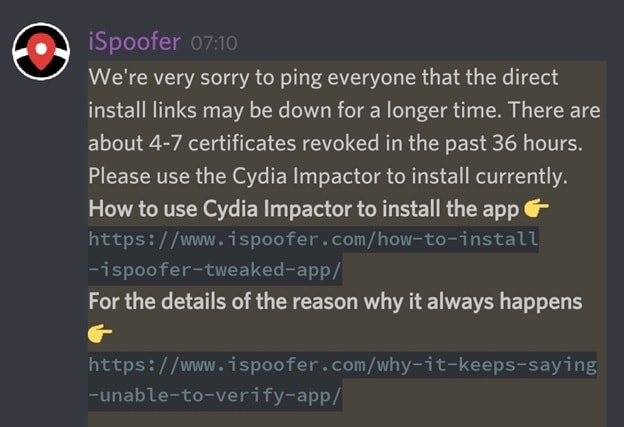
iSpoofer not only changes the way you play the game but also defies the very concept of how the game should be perceived. You have to ‘Go’ out of the house. So, when Niantic banned the app, iSpoofer lost its very loyal customers. The main target audience were the players of Pokemon Go so you can expect how hard of an impact the loss must have brought to the revenue of iSpoofer.
So, the wise and safest option they had is to pull out and give it some time. It looks like Nianticis in no mood to give a nod to the Spoofing app (isn’t that obvious?) so iSpoofer Pokemon Go not working will remain to be a problem for a while.

There were high expectations that iSpoofer will revive back during 2020, owing to everyone staying home and being in desperate need of such spoofing apps but the audience only met with silence from their end. So, there are high chances that the very useful location spoofing app may not be around for a while at least.
Part 2 - How can I spoof on iOS safely?
If there is someone who is very disappointed with iSpoofer going off of the chart, then it must be the iPhone users. iOS doesn’t provide diverse options to do something as ‘adventurous’ as changing the location on the Vivo S17e device. You have very little apps to choose from the play store.
If you are facing the iSpoofer iOS not working problem, then you can adopt one of the listed ways -
VPNs - This doesn’t imply that every VPN that is on the internet will help you spoof your location. There are certain blessed ones that come with an in-built location spoofing option that makes the job easier. If I have to name one - then you can use Surfshark. It can sustain you as long as you do not change your location too obnoxiously that the makers can detect the very quick change from point A to Point B that is humanly impossible. However, even if it is not as effective as iSpoofer, and definitely not an alternative, you at least get to enjoy temporary benefits.
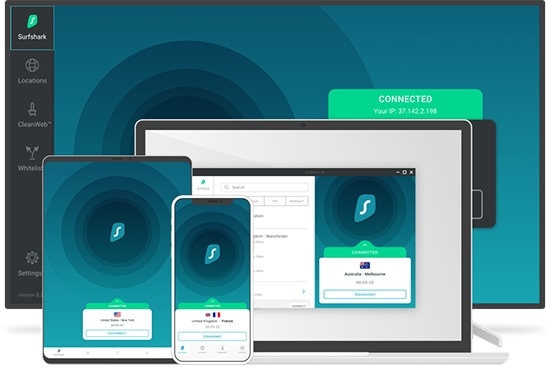
Apps on App Store - This is one of the first things that anyone would do when they are in serious need of a location change. Go to the App Store and search for the ‘Fake GPS Location Changers’. However, you have to resort to the Trial and Error method here. Not all apps are going to work - some will be detected pretty quickly - while the others will simply take up space and nothing else. Until you settle on the suitable one, the search continues.

If you are looking for a sure shot at changing your location without any hassle, then the best suggestion would be to use Dr. Fone’s Virtual Location Changer. WIthin 3-4 steps you can easily change your location to anywhere in the world. This is how you do it -
Dr.Fone - Virtual Location
1-Click Location Changer for both iOS and Android
- Teleport from one location to another across the world from the comfort of your home.
- With just a few selections on your computer, you can make members of your circle believe you’re anywhere you want.
- Stimulate and imitate movement and set the speed and stops you take along the way.
- Compatible with both iOS and Android systems.
- Work with location-based apps, like Pokemon Go , Snapchat , Instagram , Facebook , etc.
3981454 people have downloaded it
It is as simple as that with Dr.Fone - Virtual Location . So, if you are looking for an alternative until iSpoofer comes back for iOS devices then Wonderhare’s Dr.Fone can be a perfect choice.
- Title: Prevent Cross-Site Tracking on Vivo S17e and Browser | Dr.fone
- Author: Ava
- Created at : 2024-08-01 20:49:27
- Updated at : 2024-08-02 20:49:27
- Link: https://fake-location.techidaily.com/prevent-cross-site-tracking-on-vivo-s17e-and-browser-drfone-by-drfone-virtual-android/
- License: This work is licensed under CC BY-NC-SA 4.0.



 Forex Robotron Gold Package
Forex Robotron Gold Package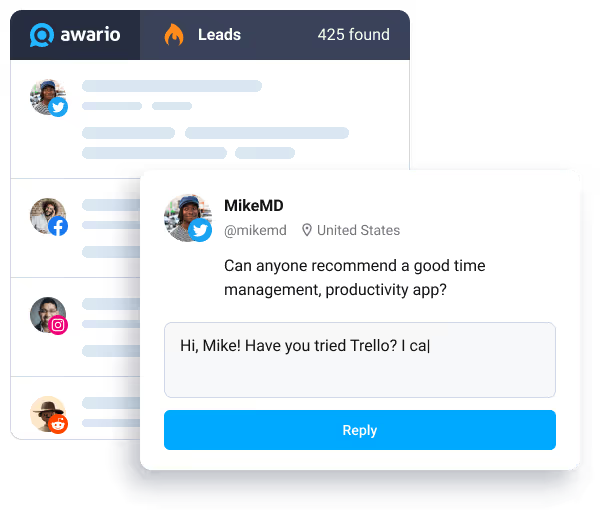


 The BootIt Collection covers multi-booting, partitioning, and disk imaging on traditional PC’s using the standard BIOS and newer PC’s using UEFI. The collection includes BootIt Bare Metal (BIBM) for standard BIOS systems and BootIt UEFI (BIU) for UEFI system.
The BootIt Collection covers multi-booting, partitioning, and disk imaging on traditional PC’s using the standard BIOS and newer PC’s using UEFI. The collection includes BootIt Bare Metal (BIBM) for standard BIOS systems and BootIt UEFI (BIU) for UEFI system. vMix Basic HD - Software based live production. vMix Basic HD includes 4 inputs, 3 cameras, streaming, recording, playlist.
vMix Basic HD - Software based live production. vMix Basic HD includes 4 inputs, 3 cameras, streaming, recording, playlist. WonderFox DVD Ripper Pro
WonderFox DVD Ripper Pro
 PearlMountain Image Converter
PearlMountain Image Converter